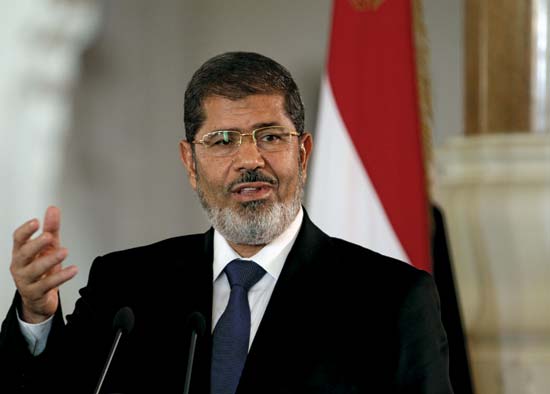
Egypt accuses UN of seeking to ‘politicize Morsi’s natural death
Egypt is accusing the united unions of seeking to “politicize” the death in court of the country’s first democratically elected president mohamed morsi by calling for an “independent inquiry”.
On Monday Foreign ministry spokesperson Ahmed Hafez said on Wednesday he condemned “in the strongest terms” the call by Rupert Colville, spokesperson for the UN high commissioner for human rights, for an independent investigation into Morsi’s .Hafez said it was a “deliberate attempt to politicize a case of natural death”.
Egypt’s first official comments on Morsi’s death came amid growing criticism about prison conditions in the Middle East nation.
On Tuesday, Colville called for a probe into whether the conditions Morsi faced during his nearly six years in custody had contributed to his death.
“Any sudden death in custody must be followed by a prompt, impartial, thorough and transparent investigation carried out by an independent body to clarify the cause of death,” he said.
“Concerns have been raised regarding the conditions of Mr Morsi’s detention, including access to adequate medical care, as well as sufficient access to his lawyers and family,” Colville added.
He said the investigation must “encompass all aspects of the authorities’ treatment of Mr Morsi to examine whether the conditions of his detention had an impact on his death.”
Morsi was buried in a small family ceremony early on Tuesday a day after he suffered a fatal heart attack in a Cairo court, his sons said.
Morsi was overthrown on July 3, 2013, after barely a year in power, in a coup staged by current President Abdel fattah el-sisi He was placed under house arrest before being moved to prison
Rights groups Amnesty International and Human Rights Watch have also called for a credible investigation into Morsi’s death.
HRW said “The government of Egypt today bears responsibility for his death, given their failure to provide him with adequate medical care or basic prisoner rights.
“He’s been in prison and treated worse than the already terrible conditions for Egypt’s prisoners,” Sarah Leah Whitson, executive director of HRW’s Middle East and North Africa division, told Al Jazeera, decrying Morsi’s “terrible but entirely predictable” death.
“The Egyptian government has known very clearly about his declining medical state. He had lost a great deal of weight, he had fainted in court a number of times and was being kept in almost around-the-clock solitary confinement.”

